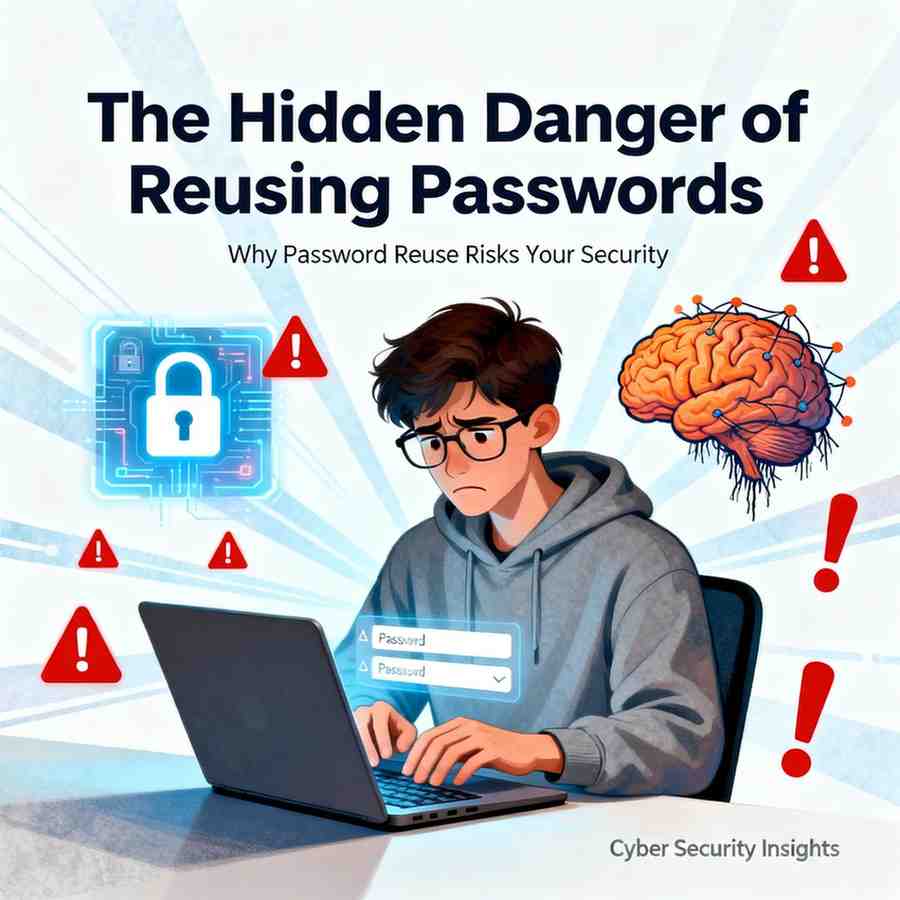


Discover the psychology of password reuse and how All Pass Hub makes secure, unique password management simple.
In today’s digital era, passwords guard everything from our bank accounts to our private conversations. Yet despite endless warnings from cybersecurity experts, one of the most commonand dangeroushabits persists: password reuse.
Surprisingly, this isn’t just a problem among casual internet users. Even tech-savvy professionals, who understand encryption and security protocols, often reuse the same or slightly modified passwords across multiple accounts.
Why does this happen? The answer lies not in ignorance but in psychology. Our brains are wired in ways that prioritize convenience, habit, and short-term reward over abstract long-term risks. By unpacking the psychology behind password reuse, we can better understand this fatal mistake and discover solutions like All Pass Hub that help bridge the gap between knowledge and action.
Most people already know reusing passwords is unsafe. Studies consistently show that 80% of data breaches are linked to weak or reused credentials. Yet surveys reveal that more than half of usersincluding IT professionalsadmit to reusing passwords anyway.
This is called the knowledge–behavior gap. Humans often act against their better judgment when the alternative feels too inconvenient. Just like smokers light a cigarette despite knowing the risks, users reuse passwords despite their awareness of danger.
The average person manages over 100 online accounts. Expecting anyone to create and remember a unique, complex password for each is unrealistic.
Our brains excel at remembering stories, patterns, and visual cues not random strings like tR$9vL!2pX. This leads to cognitive overload, where the mental effort becomes too high. To cope, people unconsciously adopt shortcuts:
Even technically skilled users hit this wall, because no amount of knowledge eliminates biological memory limits.
Another culprit is optimism bias, the belief that bad events are more likely to happen to others than to ourselves. Tech-savvy users often think:
This misplaced confidence is dangerous. Most breaches don’t happen because a hacker “targets” you personally, they occur because a site where you had an account was compromised, and your reused password gave attackers the keys to your other accounts.
Habits are powerful. Once you’ve established a password and reused it across accounts, that behavior becomes ingrained. Psychologists call this status quo bias the tendency to stick with the familiar.
Changing a habit requires deliberate effort and motivation, both of which are limited resources. Without a strong pushlike a breach or forced resetmost users simply keep reusing the same credentials.
Modern life bombards us with choices, from what to eat for breakfast to how to respond to dozens of emails. Each small decision consumes mental energy. By the time users face yet another login prompt, they’re experiencing decision fatigue.
Pair that with security fatigue, the weariness caused by constant password prompts, updates, and warnings and you get a perfect storm. Faced with one more choice, most people default to the path of least resistance: reusing a familiar password.
Humans struggle with temporal discounting the tendency to value immediate rewards over future consequences.
Since the breach feels abstract and distant, the quick convenience always wins in the moment. Even when we know better, we often sacrifice tomorrow’s safety for today’s ease.
Ironically, many users fear the frustration of being locked out more than they fear a hack. They imagine struggling through password resets, waiting for recovery emails, or losing access entirely.
This anxiety pushes them toward password reuse, which feels “safer” in terms of guaranteed access even though it makes them less safe from attackers.
Tech-savvy users often believe their vigilance will protect them. They trust their ability to spot phishing attempts or detect unusual account activity. This illusion of control leads them to think password reuse is acceptable if they’re careful elsewhere.
The problem: many breaches happen silently. If an attacker gets your reused credentials from a breached site, they can quietly try them on dozens of other services with automated scriptsno phishing required. By the time you notice, the damage is often done.
Password habits don’t exist in a vacuum. If friends, coworkers, or even IT staff casually reuse passwords, it normalizes the behavior. Social proof is a strong psychological driver if everyone around you does it, it feels less dangerous.
Changing password behavior often requires cultural change, not just individual awareness.
Understanding psychology explains why we reuse passwords. But solving the problem requires tools that make secure behavior effortless. That’s where All Pass Hub comes in.
All Pass Hub is a password management platform designed to remove the friction that drives people toward reuse. Here’s how it helps overcome the psychological barriers:
By reframing password security as a frictionless, automated experience, All Pass Hub addresses the psychological roots of reuse and makes strong habits the easy choice.
Pairing a tool like All Pass Hub with small behavioral nudges can make adoption even easier:
These strategies align with how humans actually think and behave, making security sustainable.
Password reuse isn’t simply a matter of laziness. It’s a deeply human response to cognitive limits, habits, overconfidence, and fatigue. Even the most technically skilled users fall into the trap because psychology not knowledge drives much of our behavior.
The good news? We don’t need to rely on willpower alone. By using tools like All Pass Hub, we can reduce friction, lower anxiety, and make strong password practices effortless. When secure behavior becomes the easy, default behavior, everyone wins.
At the end of the day, cybersecurity isn’t just about firewalls or algorithms, it’s about people. And until we design systems that respect the human mind, password reuse will remain one of our greatest vulnerabilities.
